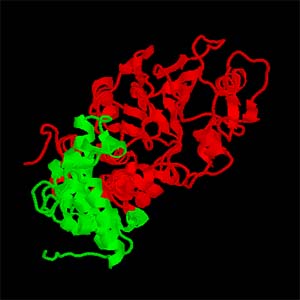Enzyme ‘Calcineurin’ Critical In Healthy Heart Function
 Researchers at Cincinnati Children's Hospital Medical Center and the Howard Hughes Medical Institute have suggested that the enzyme called 'calcineurin' is important in controlling normal growth and role of heart cells, and that loss of the protein causes heart troubles and death in genetically modified mice.
Researchers at Cincinnati Children's Hospital Medical Center and the Howard Hughes Medical Institute have suggested that the enzyme called 'calcineurin' is important in controlling normal growth and role of heart cells, and that loss of the protein causes heart troubles and death in genetically modified mice.
The results of the study will be released in the Journal of Biological Chemistry on February 26.
The research establishes that calcineurin in hearts of mice is directly associated to proper heart muscle contraction, pulse and continuation of heart action.
The near total deficiency of calcineurin in mice causes heart arrhythmia, breakdown and casualty, according to the research group.
Researchers experienced earlier that calcineurin is vital to heart function, but the degree of its task had not been determined prior to the current research.
Although the study involved mice, it provides important insights for future researches, which could result in new approaches in identification and cure of heart patients, said Marjorie Maillet, Ph. D., the study's first author.
Dr. Maillet said, "We found that when you eliminate calcineurin, a pool of genes that regulates calcium in the heart went awry. This leads to defects in the growth and proliferation of heart cells, heart disease, arrhythmia, loss of contractility and heart failure and disease."
Calcium is also vital to heart development and the contraction of its muscle. Earlier researches have associated abnormalities in calcium handling to heart problems, especially in grownups.
In mice genetically bred for calcineurin deficit, the scientists checked that this deficiency causes a dramatic diminution in the expression of genes that coordinately control calcium-handling and contraction.
The researchers also report a newly discovered "feed-forward" mechanism, in which the straight activation of calcineurin by calcium boosts the genes expression. (With Input from Agencies)